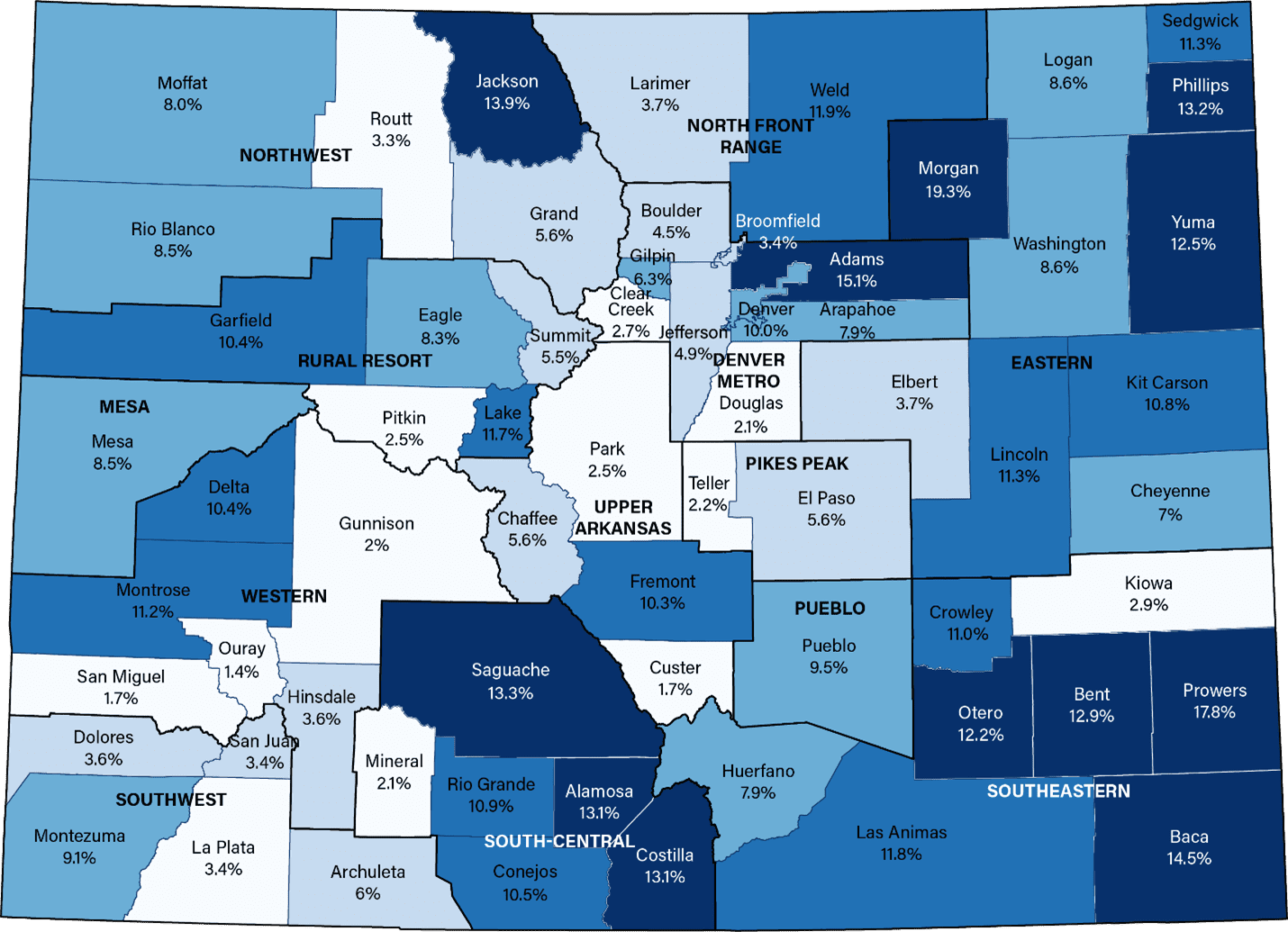A summary of the list of recommendations on the implementation of the OBBBA in Colorado regarding public benefits systems and work requirements.
Recent articles
CCLP testifies in support of Colorado’s AI Sunshine Act
Charles Brennan provided testimony in support of Senate Bill 25B-004, Increase Transparency for Algorithmic Systems, during the 2025 Special Session. CCLP is in support of SB25B-004.
Coloradans launch 2026 ballot push for graduated state income tax
New ballot measure proposals would cut taxes for 98 percent of Coloradans, raise revenue to address budget crisis.
CCLP statement on the executive order and Colorado’s endless budget catastrophe
Coloradans deserve better than the artificial budget crisis that led to today's crippling cuts by Governor Jared Polis.
SB23-007 Will Provide Much-Needed Resources to Colorado’s Adult Education Providers

Educational attainment is increasingly becoming a necessity for employment in a good, well-paying job here in Colorado. The Colorado Workforce Development Council’s Talent Pipeline Report for 2022 found that among Colorado’s top jobs that year,[i] 91.4% of tier 1 top jobs and 70.4% of tier 2 top jobs required a postsecondary degree.[ii] This means that, at a minimum, a large majority of those employed in a top job in Colorado in 2022 had completed their high school education in addition to some sort of degree or credential after high school. It also means that Colorado will need to train our workforce of the future to have the skills and credentials needed to fill our fastest growing, highest paying jobs.
According to the U.S. Census Bureau, 7.6% of Coloradans ages 25 and older did not have a high school credential in 2021.[iii] Of these 300,000 or so individuals, 44.1% left school without completing 9th grade. The share of adults who have not received a high school credential varied across demographic groups and by county that year. For example, 23.6% of Hispanic or Latino/a adults in Colorado did not have a high school credential, compared to 3.1% of white Coloradans, the only racial or ethnic group in the state to have a high school credential non-attainment rate lower than that for the state as a whole.
Share of adults ages 25 and up without a high school credential, 2021
Source: 2021 1-Year American Community Survey, U.S. Census Bureau
There are also noticeable geographic differences in the rate of Coloradans without a high school credential. In 2021, approximately 8.7% of adults ages 25 and up living in a rural county did not have a high school diploma, compared to 7.5% of this population living in an urban county.[iv] Nearly one in five Coloradans 25 years and older living in Morgan County lacked a high school credential that same year, the highest rate of any county in the state.
Without investments in adult education, workers will not have the opportunities they need to complete their high school education—a fundamental first step required for most credentials or postsecondary degrees available in the state. Compared to states of similar sizes and budgets in 2020, Colorado ranked above only Louisiana and Nevada in terms of percent of funding for federal adult education programs, all of which came from federal or local funding sources.[v] In addition, Oregon contributed over $36 million of state funds to its federal adult education programs in 2020—Colorado contributed zero state dollars that same year. Compared to K-12 education funding, where the state spends $9,500 per student,[vi] Colorado provides only $1,000 per student for adult education.[vii]
SB23-007 would take an important step in addressing disparities that exist in education funding in Colorado by allocating $2 million from the General Fund to the Adult Education Grant Program, administered by the Colorado Department of Education (CDE). This grant program provides funding to adult education providers in Colorado to offer basic adult education in literacy, digital literacy, and numeracy that leads to a postsecondary credential, employment, or additional skills.
Importantly, the bill will allow community colleges, local district colleges, and area technical colleges to develop minimum graduation requirements and award high school diplomas, expanding the opportunities for adults who may be lacking a high school credential to attain one. It also adds digital literacy to the skills that adult education providers must offer, providing additional resources to the state’s wider digital equity efforts that will also play an important role in preparing Coloradans to be proficient in not only using technology and accessing the internet, but in having the skills and expertise necessary to be proficient and effective in digital environments.
The Colorado Center on Law and Policy supports SB23-007 and we hope to see this bill pass during this legislative session. Not only will it increase the relatively small amount of funding our state allocates to adult education, the bill’s provisions to expand the types of educational institutions that are able to grant a high school degree should provide greater access to adult education programs that result in a high school credential for those who currently lack this level of educational attainment in our state. As we continue our recovery from the COVID-19 pandemic, it is fundamental that we ensure our state’s workforce has the skills, training, and education necessary to fill good, well-paying jobs. Adult education plays a critical role in preparing our workforce for the demands of the future, and it time for the amount of funding we provide to these programs to reflect this importance.
SB23-007 passed the Colorado legislature and is awaiting the Governor’s signature!
[i] Per the Talent Pipeline report, top jobs meet three criteria: projected to have more than 40 net annual openings, above 15 percent growth rate projected for the next ten years, and a good wage. Tier 1 top jobs meet the first two criteria and pay above $71,739.20 per year; tier 2 top jobs meet the first two criteria and pay between $39,852.80 and the annual wage for a tier 1 top job.
[ii] McKennie, Caitlin. 2022 Colorado Talent Pipeline Report. Colorado Workforce Development Council, State of Colorado (2022). Accessed from https://drive.google.com/file/d/1Eo2NU2URi351YCA9FXexEpK3AN7UnIkA/view on 19 January 2023.
[iii] Table S1501: Educational Attainment, 2021 1-Year American Community Survey (ACS). U.S. Census Bureau, U.S. Department of Commerce. Accessed from https://data.census.gov/ on 19 January 2023.
[iv] Colorado Center on Law and Policy analysis of 2017-21 5-Year American Community Survey (ACS) data using 2020 U.S. Office of Management and Budget delineations of metropolitan statistical areas.
[v] U.S. Dept. of Education memo on estimated adult education state award amounts for FY20 (March 2020); supplemented by research through Spring Institute’s summer 2022 Urban Leaders Fellowship
[vi] Meltzer, Erica. “Fully fund K-12 schools? Colorado lawmakers say maybe next year.” Chalkbeat Colorado (2022). Accessed from https://co.chalkbeat.org/2022/5/3/23055738/colorado-school-funding-budget-inflation-property-tax-cap on 20 January 2023.
[vii] “Adult Education Program Fact Sheet – Colorado”. Coalition on Adult Basic Education (COABE) (2020). Accessed from https://drive.google.com/file/d/18J7pYaOvTohn_Ji0Uj5Jl2ImdK8QzSKm/view on 20 January 2023.
